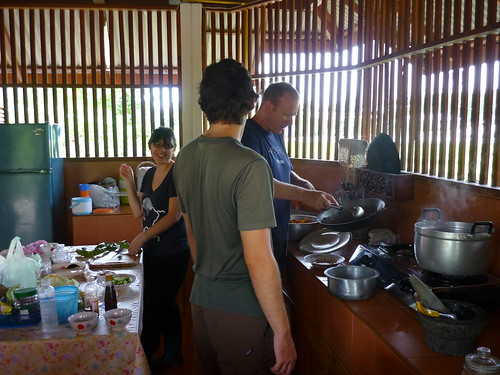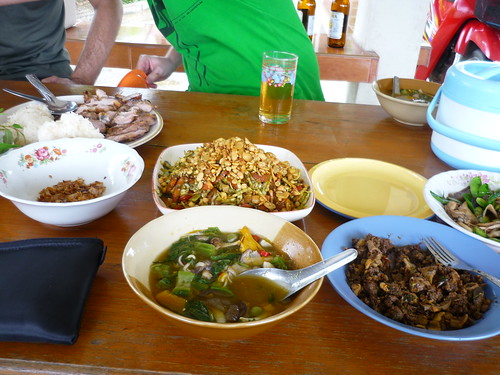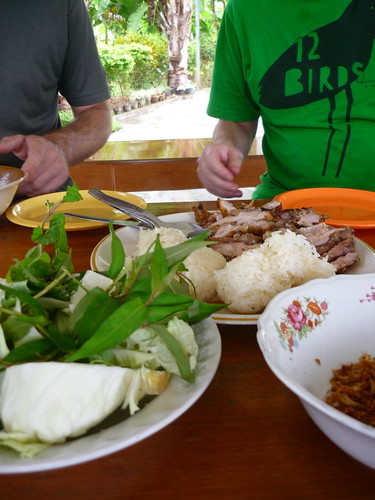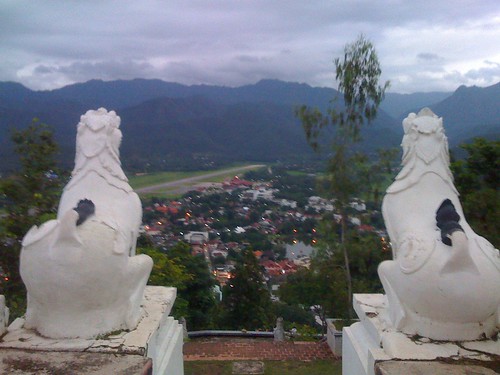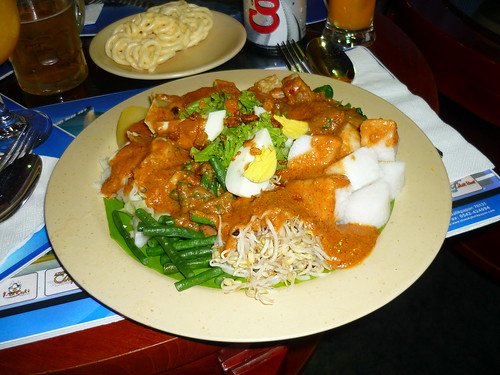Food blogs often serve as a thinly veiled excuse to brag about one's travel experiences. This blog is no exception.
So last Wednesday I found myself bumping around the back of a four wheel drive for seven hours along logging roads in the district of Berau, Borneo, Indonesia on my way with a convoy of forestry officials, climate change experts and conservationists to visit a remote tribe of forest dwellers known at the Dayaks. We arrived after dark and were ferried across a river in traditional long boats to the village.

The Dayak's are traditionally hunter gatherers/ swidden agriculturalists and gold panners, dependent on the resources of the incredibly dense rain forest in which they live to survive.
After a quick bucket shower, we were treated to a meal of freshly caught mullet, fried fish, vegetables, rice and an incredibly hot sambal, prepared in this kitchen
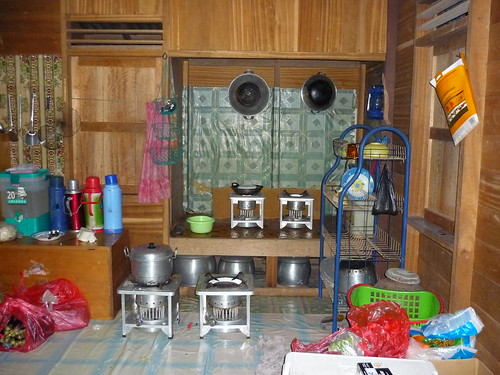
by the Dayak's women folk
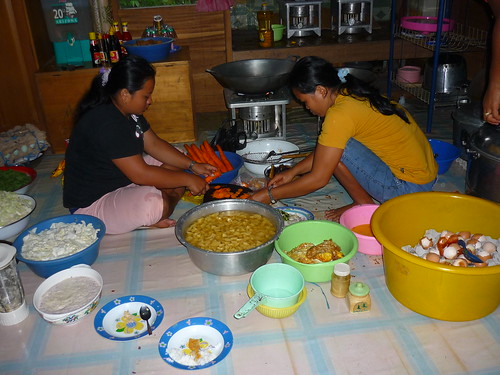
During the tribe's power point presentation to us (they may be remote and tribal but they sure ain't primitive) on their forest management strategies the male folk frequently referred to the forest as their "supermarket". I supposed that they were seeking to translate to us the abundance and utility that the forest provided them in ways they believed we would understand. Indeed, some of their household decorations attested to the fact that somehow, they managed to live in the forest

However, having already poked around the kitchen where the Dayak women prepared food, and having uncovered a large ice bin containing bags of processed sausages and chicken nuggets
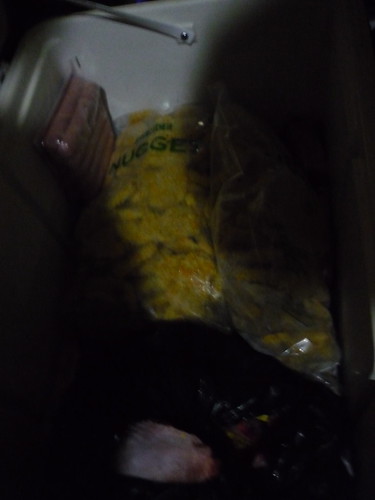
it was patently obvious to me that the supermarket was also their supermarket, even if only in the advent of catering for large groups. Indeed, their remoteness did not seem to preclude them from a great deal of modern convenience. Although there was no electricity, there were generators. They had satellite tv and their children were all sent to the provincial town for high school education. The tribe had successfully established their own forest management committee comprised of local leaders, district government officials, logging companies and international conservation groups.
The next day I awoke to survey the village I had arrive to in darkness.

Cacao grew in the front gardens and piggies posed for me


After a breakfast of white processed bread, rice, chicken nuggets and fried eggs, we travelled for one hour by long boat through the forest and up the river to meet with a neighbouring tribe and learn more about forest management practices.

We were accompanied by this cool old guy who caught fish with a spear, and owned a poison blow dart (something that me and a good friend have decided would be of great use at our university)

After forestry discussions lunch was served.

Plain rice, fried eggs, eggplant and prawn crackers, sambal, salty duck egg, more sausages and chicken nuggets and some plain cabbage soup which we ate with our right hands. As we ate a family speed by on their long boat with dogs to go wild pig hunting. A tribal member speared a fish.



